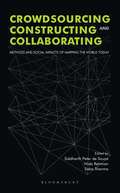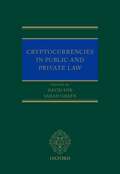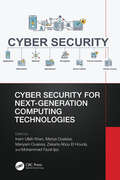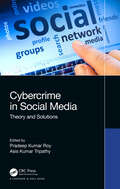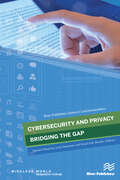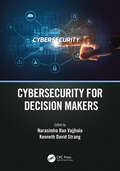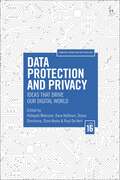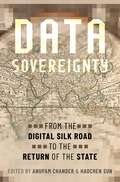- Table View
- List View
Critical Perspectives on Esports (ICSSPE Perspectives)
This book offers new, multidisciplinary perspectives on esports, one of the most rapidly growing sectors in the sports and leisure industries.Drawing on sociology, philosophy, education, business, economics, and sports science, this book considers the rise of esports, its impact on sports and society more widely, and the direction of travel for esports in the future. Featuring cutting-edge work from researchers in Europe, North America, and Asia, this book explores definitions of “esport” and “virtual sport,” and the philosophical basis by which we understand movement and embodiment in the context of digital gaming. It considers the health and well-being needs of esports athletes, across physical, mental, and social dimensions, as well as how nutrition and training relate to performance and injury prevention. This book also considers the economics of the esports industry and how the concept of sportification can be used to describe esports’ development, as well as the challenges and debates surrounding gender and representation in esports. A final section of this book looks at esports in education, in schools and universities, and considers the future of esports for a generation of digital natives.This book makes a useful contribution to the growing body of knowledge on esports and should be a thought-provoking read for anybody with an interest in sports studies, gaming, or the impact of technology on wider society.
Crowdsourcing, Constructing and Collaborating: Methods and Social Impacts of Mapping the World Today
Citizens around the world use crowdsourced platforms to hold governments accountable, to fill gaps in infrastructural and municipal services, and to call attention to issues that impact everyday lives, such as sexual violence and environmental injustice.Crowdsourcing, Constructing and Collaborating brings together individuals and groups engaged in building and sustaining platforms for online collaboration and participation, to explore and reflect on the methods, challenges and potentials of the technology of crowdsourcing, and mapping of social impact. It brings together people directly involved in a range of projects from around the world-I Paid A Bribe, Environmental Justice Atlas, HarassMap, Intolerance Tracker, Visualizing Palestine, and Humanitarian Tracker-to critically reflect on the tactics, methods, challenges and opportunities of crowdsourcing and crowd-mapping as tools for social, environmental and political change.In an accessible and visually engaging style, it shows how participatory digital media become crucial components of journalistic, scholarly and activist practices, addressing a range of topical challenges, including economic corruption, sexual harassment, political violence and environmental conflict, in diverse geographic contexts.
Cryptocurrencies in Public and Private Law
This book examines how cryptocurrencies based on blockchain technologies fit into existing general law categories of public and private law. The book takes the common law systems of the United Kingdom as the centre of its study but extends beyond the UK to show how cryptocurrencies would be accommodated in some Western European and East Asian legal systems outside the common law tradition. By investigating traditional conceptions of money in public law and private law the work examines the difficulties of fitting cryptocurrencies within those approaches and models. Fundamental questions regarding issues of ownership, transfer, conflict of laws, and taxation are addressed with a view to equipping the reader with the tools to answer common transactional questions about cryptocurrencies. The international contributor team uses the common law systems of the United Kingdom as a basis for the analysis, but also looks comparatively to other systems across the wider common law and civil law world to provide detailed examination of the legal problems encountered.
Cyber Security for Next-Generation Computing Technologies
This book sheds light on the cyber security challenges associated with nextgeneration computing technologies, emphasizing the serious threats posed to individuals, businesses, and nations. With everything becoming increasingly interconnected via the Internet, data security becomes paramount. As technology advances, people need to secure their data communication processes. Personal data security, including data integrity and confidentiality, is particularly vulnerable. Therefore, the concept of cyber security forensics emerges to ensure data security for everyone, addressing issues such as data control, hijacking, and threats to personal devices such as mobile phones, laptops, and other smart technologies. This book covers key topics related to cyber security in next-generation computing technologies, ultimately enhancing the quality of life for citizens, facilitating interaction with smart governments, and promoting secure communication processes. KEY FEATURES • Highlights innovative principles and practices using next generation computing technologies based cybersecurity. • Presents an introduction to recent trends regarding the convergence of AI/ML in cybersecurity • Offers an overview of theoretical, practical, simulation concepts of cybersecurity
Cyber Security Using Modern Technologies: Artificial Intelligence, Blockchain and Quantum Cryptography
The main objective of this book is to introduce cyber security using modern technologies such as Artificial Intelligence, Quantum Cryptography, and Blockchain. This book provides in-depth coverage of important concepts related to cyber security. Beginning with an introduction to Quantum Computing, Post-Quantum Digital Signatures, and Artificial Intelligence for cyber security of modern networks and covering various cyber-attacks and the defense measures, strategies, and techniques that need to be followed to combat them, this book goes on to explore several crucial topics, such as security of advanced metering infrastructure in smart grids, key management protocols, network forensics, intrusion detection using machine learning, cloud computing security risk assessment models and frameworks, cyber-physical energy systems security, a biometric random key generator using deep neural network and encrypted network traffic classification. In addition, this book provides new techniques to handle modern threats with more intelligence. It also includes some modern techniques for cyber security, such as blockchain for modern security, quantum cryptography, and forensic tools. Also, it provides a comprehensive survey of cutting-edge research on the cyber security of modern networks, giving the reader a general overview of the field. It also provides interdisciplinary solutions to protect modern networks from any type of attack or manipulation. The new protocols discussed in this book thoroughly examine the constraints of networks, including computation, communication, and storage cost constraints, and verifies the protocols both theoretically and experimentally. Written in a clear and comprehensive manner, this book would prove extremely helpful to readers. This unique and comprehensive solution for the cyber security of modern networks will greatly benefit researchers, graduate students, and engineers in the fields of cryptography and network security.
Cybercrime in Social Media: Theory and Solutions
This reference text presents the important components for grasping the potential of social computing with an emphasis on concerns, challenges, and benefits of the social platform in depth. Features: Detailed discussion on social-cyber issues, including hate speech, cyberbullying, and others Discusses usefulness of social platforms for societal needs Includes framework to address the social issues with their implementations Covers fake news and rumor detection models Describes sentimental analysis of social posts with advanced learning techniques The book is ideal for undergraduate, postgraduate, and research students who want to learn about the issues, challenges, and solutions of social platforms in depth.
Cybersecurity and Privacy - Bridging the Gap
The huge potential in future connected services has as a precondition that privacy and security needs are dealt with in order for new services to be accepted. This issue is increasingly on the agenda both at company and at individual level. Cybersecurity and Privacy - bridging the gap addresses two very complex fields of the digital world, i.e., Cybersecurity and Privacy. These multifaceted, multidisciplinary and complex issues are usually understood and valued differently by different individuals, data holders and legal bodies. But a change in one field immediately affects the others. Policies, frameworks, strategies, laws, tools, techniques, and technologies - all of these are tightly interwoven when it comes to security and privacy. This book is another attempt to bridge the gap between the industry and academia. The book addresses the views from academia and industry on the subject.
Cybersecurity for Decision Makers
This book is aimed at managerial decision makers, practitioners in any field, and the academic community. The chapter authors have integrated theory with evidence-based practice to go beyond merely explaining cybersecurity topics. To accomplish this, the editors drew upon the combined cognitive intelligence of 46 scholars from 11 countries to present the state of the art in cybersecurity. Managers and leaders at all levels in organizations around the globe will find the explanations and suggestions useful for understanding cybersecurity risks as well as formulating strategies to mitigate future problems. Employees will find the examples and caveats both interesting as well as practical for everyday activities at the workplace and in their personal lives. Cybersecurity practitioners in computer science, programming, or espionage will find the literature and statistics fascinating and more than likely a confirmation of their own findings and assumptions. Government policymakers will find the book valuable to inform their new agenda of protecting citizens and infrastructure in any country around the world. Academic scholars, professors, instructors, and students will find the theories, models, frameworks, and discussions relevant and supportive to teaching as well as research.
Cybersecurity Management in Education Technologies: Risks and Countermeasures for Advancements in E-learning
This book explores the intersection of cybersecurity and education technologies, providing practical solutions, detection techniques, and mitigation strategies to ensure a secure and protected learning environment in the face of evolving cyber threats. With a wide range of contributors covering topics from immersive learning to phishing detection, this book is a valuable resource for professionals, researchers, educators, students, and policymakers interested in the future of cybersecurity in education. Features: • Offers both theoretical foundations and practical guidance for fostering a secure and protected environment for educational advancements in the digital age. • Addresses the need for cybersecurity in education in the context of worldwide changes in education sources and advancements in technology. • Highlights the significance of integrating cybersecurity into educational practices and protecting sensitive information to ensure students’ performance prediction systems are not misused. • Covers a wide range of topics including immersive learning, cybersecurity education, and malware detection, making it a valuable resource for professionals, researchers, educators, students, and policymakers.
Data Analytics and Adaptive Learning: Research Perspectives
Data Analytics and Adaptive Learning offers new insights into the use of emerging data analysis and adaptive techniques in multiple learning settings. In recent years, both analytics and adaptive learning have helped educators become more responsive to learners in virtual, blended, and personalized environments. This set of rich, illuminating, international studies spans quantitative, qualitative, and mixed-methods research in higher education, K–12, and adult/continuing education contexts. By exploring the issues of definition and pedagogical practice that permeate teaching and learning and concluding with recommendations for the future research and practice necessary to support educators at all levels, this book will prepare researchers, developers, and graduate students of instructional technology to produce evidence for the benefits and challenges of data-driven learning.
Data-Driven Decision Making in Entrepreneurship: Tools for Maximizing Human Capital
Since the beginning of the 21st century, there has been an explosion in startup organizations. Together, these organizations have been valued at over $3 trillion. In 2019, alone, nearly $300 billion of venture capital was invested globally (Global Startup Ecosystem Report 2020). Simultaneously, an explosion in high volume and high velocity of big data is rapidly changing how organizations function. Gone are the days where organizations can make decisions solely on intuition, logic, or experience. Some have gone as far as to say that data is the most valuable currency and resource available to businesses, and startups are no exception. However, startups and small businesses do differ from their larger counterparts and corporations in three distinct ways: 1) they tend to have fewer resources, time, and specialized training to devote to data analytics; 2) they are part of a unique entrepreneurial ecosystem with unique needs; 3) scholarship and academic research on human capital data analytics in startups is lacking. Existing entrepreneurship research focuses almost exclusively on macro-level aspects. There has been little to no integration of micro- and meso-level research (i.e., individual and team sciences), which is unfortunate given how organizational scientists have significantly advanced human capital data analytics. Unlike other books focused on data analytics and decision for organizations, this proposed book is purposefully designed to be more specifically aimed at addressing the unique idiosyncrasies of the science, research, and practice of startups. Each chapter highlights a specific organizational domain and discuss how a novel data analytic technique can help enhance decision-making, provides a tutorial of said regarding the data analytic technique, and lists references and resources for the respective data analytic technique. The volume will be grounded in sound theory and practice of organizational psychology, entrepreneurship and management and is divided into two parts: assessing and evaluating human capital performance and the use of data analytics to manage human capital.
Data Governance in AI, FinTech and LegalTech: Law and Regulation in the Financial Sector
Advocating for more standardised data governance practices and promoting the digital economy, Data Governance in AI, FinTech and LegalTech investigates the rationale, legal base and tools of data governance in the financial sector. This timely book makes a significant contribution to the debate around how rapidly-evolving digital finance practices should be regulated.Contributions from leading researchers examine a range of financial services, offering a comprehensive assessment of the available tools for constructing multi-layered matrix systems for data governance in the financial services sector. Chapters explore data governance in the cryptocurrency market, crypto-asset providers, legal services for mergers and acquisitions, consumer insurance, consumer finance, digital platform services, securities exchanges and the green bond market. The book serves to define the legal contours of data governance, taking account of the influence of shifting business models, the views of multiple stakeholders and emerging issues surrounding data protection, privacy and cybersecurity.This is a crucial read for scholars of law and finance who are researching data regulation, data governance and financial market law. Exploring both the opportunities and risks arising from the digital transformation of financial markets, it will also be invaluable for practitioners and policy makers working in the financial sector, law, risk management and compliance.
Data Protection and Digital Sovereignty Post-Brexit
One of the promises of Brexit was to allow the UK to regain its legislative sovereignty from the EU. However, after Brexit, UK data protection law must remain in line with EU standards in order not to lose the adequacy status that allows personal data to be transferred from the EU. This circumstance generates tensions between the EU, which is committed to preserving its digital sovereignty by ensuring an adequate protection of personal data even beyond its borders, and the UK's ambition to become a champion of the digital economy by adopting an innovative and pro-business legislation in the digital field. The book analyses the latest legal and policy developments in this context, focusing on data protection but also exploring its intersection with other related regulatory areas, such as artificial intelligence and online safety. Renowned international experts contextualise current regulatory trends and policy proposals to understand whether a new UK model in the field of digital regulation is emerging and to what extent this will exacerbate existing tensions between the UK and the EU. The book includes an accessible and detailed analysis of the major judicial decisions, laws, and current bills offering an invaluable guide to academics, practitioners, and policymakers navigating the complex issues of cross-border data protection post-Brexit.
Data Protection and Privacy: Data Protection and Democracy (Computers, Privacy and Data Protection)
The subjects of this volume are more relevant than ever, especially in light of the raft of electoral scandals concerning voter profiling. This volume brings together papers that offer conceptual analyses, highlight issues, propose solutions, and discuss practices regarding privacy and data protection. It is one of the results of the twelfth annual International Conference on Computers, Privacy and Data Protection, CPDP, held in Brussels in January 2019.The book explores the following topics: dataset nutrition labels, lifelogging and privacy by design, data protection iconography, the substance and essence of the right to data protection, public registers and data protection, modelling and verification in data protection impact assessments, examination scripts and data protection law in Cameroon, the protection of children's digital rights in the GDPR, the concept of the scope of risk in the GDPR and the ePrivacy Regulation.This interdisciplinary book has been written at a time when the scale and impact of data processing on society – not only on individuals, but also on social systems – is becoming ever starker. It discusses open issues as well as daring and prospective approaches, and will serve as an insightful resource for readers with an interest in computers, privacy and data protection.
Data Protection and Privacy: Data Protection and Artificial Intelligence (Computers, Privacy and Data Protection)
This book brings together papers that offer conceptual analyses, highlight issues, propose solutions, and discuss practices regarding privacy, data protection and Artificial Intelligence. It is one of the results of the thirteenth annual International Conference on Computers, Privacy and Data Protection (CPDP) held in Brussels in January 2020. The development and deployment of Artificial Intelligence promises significant break-throughs in how humans use data and information to understand and interact with the world. The technology, however, also raises significant concerns. In particular, concerns are raised as to how Artificial Intelligence will impact fundamental rights.This interdisciplinary book has been written at a time when the scale and impact of data processing on society – on individuals as well as on social systems – is becoming ever starker. It discusses open issues as well as daring and prospective approaches and is an insightful resource for readers with an interest in computers, privacy and data protection.
Data Protection and Privacy, Volume 14: Enforcing Rights in a Changing World (Computers, Privacy and Data Protection)
This book brings together papers that offer conceptual analyses, highlight issues, propose solutions, and discuss practices regarding privacy, data protection and enforcing rights in a changing world. It is one of the results of the 14th annual International Conference on Computers, Privacy and Data Protection (CPDP), which took place online in January 2021.The pandemic has produced deep and ongoing changes in how, when, why, and the media through which, we interact. Many of these changes correspond to new approaches in the collection and use of our data - new in terms of scale, form, and purpose. This raises difficult questions as to which rights we have, and should have, in relation to such novel forms of data processing, the degree to which these rights should be balanced against other poignant social interests, and how these rights should be enforced in light of the fluidity and uncertainty of circumstances. The book covers a range of topics, such as: digital sovereignty; art and algorithmic accountability; multistakeholderism in the Brazilian General Data Protection law; expectations of privacy and the European Court of Human Rights; the function of explanations; DPIAs and smart cities; and of course, EU data protection law and the pandemic – including chapters on scientific research and on the EU Digital COVID Certificate framework.This interdisciplinary book has been written at a time when the scale and impact of data processing on society – on individuals as well as on social systems – is becoming ever starker. It discusses open issues as well as daring and prospective approaches and is an insightful resource for readers with an interest in computers, privacy and data protection.
Data Protection and Privacy, Volume 15: In Transitional Times (Computers, Privacy and Data Protection)
This book offers conceptual analyses, highlights issues, proposes solutions, and discusses practices regarding privacy and data protection in transitional times. It is one of the results of the 15th annual International Conference on Computers, Privacy and Data Protection (CPDP), which was held in Brussels in May 2022.We are in a time of transition. Artificial Intelligence is making significant breakthroughs in how humans use data and information, and is changing our lives in virtually all aspects. The pandemic has pushed society to adopt changes in how, when, why, and the media through which, we interact. A new generation of European digital regulations - such as the AI Act, Digital Services Act, Digital Markets Act, Data Governance Act, and Data Act - is on the horizon. This raises difficult questions as to which rights we should have, the degree to which these rights should be balanced against other poignant social interests, and how these rights should be enforced in light of the fluidity and uncertainty of circumstances.The book covers a range of topics, including: data protection risks in European retail banks; data protection, privacy legislation, and litigation in China; synthetic data generation as a privacy-preserving technique for the training of machine learning models; effectiveness of privacy consent dialogues; legal analysis of the role of individuals in data protection law; and the role of data subject rights in the platform economy.This interdisciplinary book has been written at a time when the scale and impact of data processing on society – on individuals as well as on social systems – is becoming ever more important. It discusses open issues as well as daring and prospective approaches and is an insightful resource for readers with an interest in computers, privacy and data protection.
Data Protection and Privacy, Volume 16: Ideas That Drive Our Digital World (Computers, Privacy and Data Protection)
This book explores the complexity and depths of our digital world by providing a selection of analyses and discussions from the 16th annual international conference on Computers, Privacy and Data Protection (CPDP): Ideas that Drive Our Digital World. The first half of the book focuses on issues related to the GDPR and data. These chapters provide a critical analysis of the 5-year history of the complex GDPR enforcement system, covering: codes of conduct as a potential co-regulation instrument for the market; an interdisciplinary approach to privacy assessment on synthetic data; the ethical implications of secondary use of publicly available personal data; and automating technologies and GDPR compliance.The second half of the book shifts focus to novel issues and ideas that drive our digital world. The chapters offer analyses on social and environmental sustainability of smart cities; reconstructing states as information platforms; stakeholder identification using the example of video-based Active and Assisted Living (AAL); and a human-centred approach to dark patterns.This interdisciplinary book takes readers on an intellectual journey into a wide range of issues and cutting-edge ideas to tackle our ever-evolving digital landscape.
Data Protection Beyond Borders: Transatlantic Perspectives on Extraterritoriality and Sovereignty
This timely book examines crucial developments in the field of privacy law, efforts by legal systems to impose their data protection standards beyond their borders and claims by states to assert sovereignty over data.By bringing together renowned international privacy experts from the EU and the US, the book provides an accurate analysis of key trends and prospects in the transatlantic context, including spaces of tensions and cooperation between the EU and the US in the field of data protection law.The chapters explore recent legal and policy developments both in the private and law enforcement sectors, including recent rulings by the Court of Justice of the EU dealing with Google and Facebook, recent legislative initiatives in the EU and the US such as the CLOUD Act and the e-evidence proposal, as well as ongoing efforts to strike a transatlantic deal in the field of data sharing.All of the topics are thoroughly examined and presented in an accessible way that will appeal to scholars in the fields of law, political science and international relations, as well as to a wider and non-specialist audience. The book is an essential guide to understanding contemporary challenges to data protection across the Atlantic.
Data Science – Analytics and Applications: Proceedings of the 2nd International Data Science Conference – iDSC2019
This book offers the proceedings of the Second International Data Science Conference (iDSC2019), organized by Salzburg University of Applied Sciences, Austria. The Conference brought together researchers, scientists, and business experts to discuss new ways of embracing agile approaches to various facets of data science, including machine learning and artificial intelligence, data mining, data visualization, and communication. The papers gathered here include case studies of applied techniques, and theoretical papers that push the field into the future. The full-length scientific-track papers on Data Analytics are broadly grouped by category, including Complexity; NLP and Semantics; Modelling; and Comprehensibility. Included among real-world applications of data science are papers on Exploring insider trading using hypernetworksData-driven approach to detection of autism spectrum disorderAnonymization and sentiment analysis of Twitter posts Theoretical papers in the book cover such topics as Optimal Regression Tree Models Through Mixed Integer Programming; Chance Influence in Datasets with Large Number of Features; Adversarial Networks — A Technology for Image Augmentation; and Optimal Regression Tree Models Through Mixed Integer Programming. Five shorter student-track papers are also published here, on topics such as State-of-the-art Deep Learning Methods to effect Neural Machine Translation from Natural Language into SQLA Smart Recommendation System to Simplify Projecting for a HMI/SCADA Platform Use of Adversarial Networks as a Technology for Image AugmentationUsing Supervised Learning to Predict the Reliability of a Welding Process The work collected in this volume of proceedings will provide researchers and practitioners with a detailed snapshot of current progress in the field of data science. Moreover, it will stimulate new study, research, and the development of new applications.
Data Science – Analytics and Applications: Proceedings of the 3rd International Data Science Conference – iDSC2020
Organisationen sind bereits von der starren Struktur des klassischen Projektmanagements zu agilen Ansätzen übergegangen. Dies gilt auch für Softwareentwicklungsprojekte, die flexibel sein müssen, um schnell auf die Wünsche der Kunden reagieren zu können und um Änderungen zu berücksichtigen, die aufgrund von Architekturentscheidungen erforderlich sind. Nachdem sich die Datenwissenschaft als Eckpfeiler in Organisationen und Unternehmen etabliert hat, ist es nun zwingend erforderlich, diesen entscheidenden Schritt auch für analytische Geschäftsprozesse durchzuführen. Die nicht-deterministische Natur der Datenwissenschaft und die ihr innewohnenden analytischen Aufgaben erfordern einen interaktiven Ansatz für eine evolutionäre, schrittweise Entwicklung zur Realisierung der wichtigsten Geschäftsanwendungen und Anwendungsfälle.Die 3. Internationale Konferenz zur Datenwissenschaft (iDSC 2020) brachte Forscher, Wissenschaftler und Wirtschaftsexperten zusammen, um Möglichkeiten zu erörtern, wie neue Wege zur Umsetzung agiler Ansätze in den verschiedenen Bereichen der Datenwissenschaft, wie maschinelles Lernen und KI, Data Mining oder Visualisierung und Kommunikation, sowie Fallstudien und Best Practices von führenden Forschungseinrichtungen und Wirtschaftsunternehmen etabliert werden können.Der Tagungsband umfasst alle im wissenschaftlichen Track vorgestellten Volltexte und die Kurzbeiträge aus dem studentischen Track.Zu den Themen, die Sie interessieren, gehören unter anderem: Künstliche Intelligenz und Maschinelles Lernen Implementierung von Data-Mining-Prozessen Agile Datenwissenschaft und Visualisierung Fallstudien und Anwendungen für Agile DatenwissenschaftOrganizations have moved already from the rigid structure of classical project management towards the adoption of agile approaches. This holds also true for software development projects, which need to be flexible to adopt to rapid requests of clients as well to reflect changes that are required due to architectural design decisions. With data science having established itself as corner stone within organizations and businesses, it is now imperative to perform this crucial step for analytical business processes as well. The non-deterministic nature of data science and its inherent analytical tasks require an interactive approach towards an evolutionary step-by-step development to realize core essential business applications and use-cases.The 3rd International Data Science Conference (iDSC 2020) brougt together researchers, scientists, and business experts to discuss means of establishing new ways of embracing agile approaches within the various domains of data science, such as machine learning and AI, data mining, or visualization and communication as well as case studies and best-practices from leading research institutions and business companies.The proceedings include all full papers presented in the scientific track and the short papers from the student track.Among the topics of interest are:Artificial Intelligence and Machine Learning Implementation of data mining processes Agile Data Science and Visualization Case Studies and Applications for Agile Data Science
Data Science – Analytics and Applications: Proceedings of the 4th International Data Science Conference – iDSC2021
Organizations have moved already from the rigid structure of classical project management towards the adoption of agile approaches. This holds also true for software development projects, which need to be flexible to adopt to rapid requests of clients as well to reflect changes that are required due to architectural design decisions. With data science having established itself as corner stone within organizations and businesses, it is now imperative to perform this crucial step for analytical business processes as well. The non-deterministic nature of data science and its inherent analytical tasks require an interactive approach towards an evolutionary step-by-step development to realize core essential business applications and use cases.The 4th International Data Science Conference (iDSC) 2021 brought together researchers, scientists, and business experts to discuss means of establishing new ways of embracing agile approaches within the various domains of data science, such as machine learning and AI, data mining, or visualization and communication as well as case studies and best practices from leading research institutions and business companies.The proceedings include all full papers presented in the scientific track and the corresponding German abstracts as well as the short papers from the student track.Among the topics of interest are:Artificial Intelligence and Machine Learning Implementation of data mining processes Agile Data Science and Visualization Case Studies and Applications for Agile Data Science---Organisationen sind bereits von der starren Struktur des klassischen Projektmanagements zu agilen Ansätzen übergegangen. Dies gilt auch für Softwareentwicklungsprojekte, die flexibel sein müssen, um schnell auf die Wünsche der Kunden reagieren zu können und um Änderungen zu berücksichtigen, die aufgrund von Architekturentscheidungen erforderlich sind. Nachdem sich die Datenwissenschaft als Eckpfeiler in Organisationen und Unternehmen etabliert hat, ist es nun zwingend erforderlich, diesen entscheidenden Schritt auch für analytische Geschäftsprozesse durchzuführen. Die nicht-deterministische Natur der Datenwissenschaft und die ihr innewohnenden analytischen Aufgaben erfordern einen interaktiven Ansatz für eine evolutionäre, schrittweise Entwicklung zur Realisierung der wichtigsten Geschäftsanwendungen und Anwendungsfälle.Die 4. Internationale Konferenz zur Datenwissenschaft (iDSC 2021) brachte Forscher, Wissenschaftler und Wirtschaftsexperten zusammen, um Möglichkeiten zu erörtern, wie neue Wege zur Umsetzung agiler Ansätze in den verschiedenen Bereichen der Datenwissenschaft, wie maschinelles Lernen und KI, Data Mining oder Visualisierung und Kommunikation, sowie Fallstudien und Best Practices von führenden Forschungseinrichtungen und Wirtschaftsunternehmen etabliert werden können.Der Tagungsband umfasst alle im wissenschaftlichen Track vorgestellten Volltexte und die Kurzbeiträge aus dem studentischen Track auf Englisch und die dazugehörigen Abstracts auf Deutsch.Zu den Themen, die sie interessieren, gehören unter anderem: Künstliche Intelligenz und Maschinelles Lernen Implementierung von Data-Mining-Prozessen Agile Datenwissenschaft und Visualisierung Fallstudien und Anwendungen für Agile Datenwissenschaft
Data Sovereignty: From the Digital Silk Road to the Return of the State
Who, if anyone, should regulate the internet? Governments around the world have answered this question robustly: they will. Data sovereignty-the exercise of control over the internet-is the ambition of world leaders as a natural extension of traditional sovereignty and as a bulwark against the reach of foreign power. The question posed to governments now is not who should regulate the internet, but how should it be done. Data Sovereignty: From the Digital Silk Road to the Return of the State focuses on the question of territorial control over data flows and attempts by national and regional governments to place limits on the free movement of data across a global internet. Drawing on theories in political economy, international law, human rights, and data protection, this volume offers new theoretical perspectives and thought-provoking ideas about the nature and scope of data sovereignty. It examines the extent to which new technologies, such as artificial intelligence, robotics, and automation, pose challenges to data sovereignty and how those challenges might be addressed. In chapters that are both descriptively comprehensive and analytically rich, the book explains the national, regional, and international legal frameworks for regulating the digital economy. Professors Anupam Chander and Haochen Sun have assembled a distinguished team of experts across multiple fields to address the promise and pitfalls of data sovereignty in the context of trade liberalization, data localization, and human rights protection. In a world that is still grappling with the scope of the internet, Data Sovereignty offers a timely and thorough investigation of the ongoing conflict between the state and the internet. This is an open access title available under the terms of a CC BY-NC-ND 4.0 International licence. It is free to read on Oxford Scholarship Online and offered as a free PDF download from OUP and selected open access locations.
Datacenter Connectivity Technologies: Principles and Practice
In recent years, investments by cloud companies in mega data centers and associated network infrastructure has created a very active and dynamic segment in the optical components and modules market. Optical interconnect technologies at high speed play a critical role for the growth of mega data centers, which flood the networks with unprecedented amount of data traffic. Datacenter Connectivity Technologies: Principles and Practice provides a comprehensive and in-depth look at the development of various optical connectivity technologies which are making an impact on the building of data centers. The technologies span from short range connectivity, as low as 100 meters with multi-mode fiber (MMF) links inside data centers, to long distances of hundreds of kilometers with single-mode fiber (SMF) links between data centers.This book is the first of its kind to address various advanced technologies connecting data centers. It represents a collection of achievements and the latest developments from well-known industry experts and academic researchers active in this field.
Decent Work in the Digital Age: European and Comparative Perspectives
This book explores the legal and practical implications of the digital age for employment and industrial relations. To that end, the book analyses the problems arising from the digitalisation of work and the negative effects on working conditions in fields such as platform work, robotisation, discrimination, data protection, and freedom of speech. It also looks at how to ensure decent working conditions for workers affected by digitalisation, by investigating the minimum standards that should be ensured to mitigate negative effects – and how these could be best guaranteed by legislation and collective bargaining.The book presents a theoretical framework on the impact of automatisation, robotics, and digitalisation on the very basic principles of individual and collective labour law. The chapters provide an in-depth analysis of new patterns of work prompted by digitalisation, including: classification of platform workers; recognition of employment and social security rights; competition law aspects of platform work; remote (tele)work arrangements; algorithmic decision-making and remote surveillance; data protection and privacy; and social media in working environments. The book is an important reference for academics and researchers, social partners, and policy makers with an interest in labour law and industrial relations.

